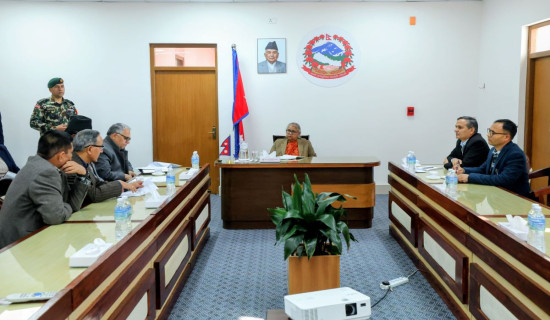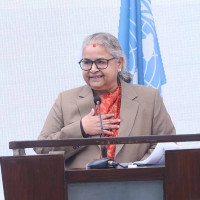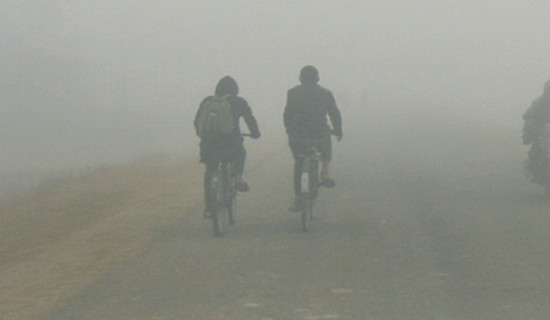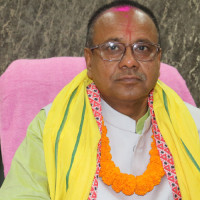- Thursday, 18 December 2025
Women’s Day means nothing for Baitadi women
By Gokarna Dayal,Baitadi, Mar. 9: The local levels of Baitadi on Wednesday marked the 113th International Women Workers Day with a whole lot of grandeur and pomp.
To mark the day, Dasharathchand Municipality also organised a Deuda song and dance competition in the district headquarters.
Surprisingly, the event was mostly attended by the women belonging to the financially well-off families, who were clad in beautiful saris and jewelleries. They even sang a song portraying women’s ordeal.
However, daily wage earners and working-class women were left untouched by the celebration.
Since the early morning, women of the municipality, who have been living on daily wages, were found heading towards the jungle to collect green fodder for their cattle.
As the government declared a public holiday on International Women’s Day on Wednesday, the daily wage earners of the district remained jobless throughout the day. Though the male labourers were taking a break from their work, their women counterparts were busy with their unpaid household chores.
Jyoti Bhul, a local woman who was collecting green fodder, shared that female labourers who go to the workplace after completing their daily household chores face discrimination even in the workplace.
Despite working equal, female labourers get paid less than males do, she added.
According to her, she is paid Rs. 700 per day for her work while her male co-worker receives Rs. 960 for the same work.
Though she knows it is unfair, she cannot afford to not work, said Bhul while talking to The Rising Nepal.
Many women of the municipality say that they have to accept whatever amount is paid or else they would have no means of survival.
Commenting on the celebration of the municipality, Bhul said “This one-day celebration of Women’s Day never talked about the unequal payment and unpaid domestic chores of women.”
Women have to toil throughout the day, both indoors and outdoors. They have to climb trees and even cliffs to collect green fodder risking their lives.
Many women have met with fatal accidents while working. This year alone, seven women of Baitadi died after falling off a cliff while collecting green fodder, the District Police Office said.
However, the family of the woman, who died in such incidents, have not been able to get any compensation from the local government.
Women, who have been carrying out unpaid household chores, have not been able to follow safety measures to save their lives.
Even the organisations working in the field of women’s rights have not been able to provide any support to these women who are doing hard labor without recognition.
Parbati Bhatta, a human rights activist, said that the local government should take measures to reduce the occurrence of such incidents and insure them.
A total of 90 women of Freed Haliya settlement of Badilek, Dasharathchand Municipality-4 have been earning their livelihood by doing their daily wage labour.
When asked about the day, majority of them shared that they were unaware about such celebrations. Many of them don’t even have a proper house to live in. Jyoti Bhul, a single woman of the settlement has been living in somebody else’s cow shed as she has no place to call home.
Jyoti said, “What is Women’s Day? I have no idea about such an event.”
Even knowing about such a day would not change the situation of women residing in the settlement because they have to work hard on a daily basis to earn their livelihood.
Sharing her ordeal, Meena Bhul said despite the government’s announcement to liberate Haliyas, women of the community were forced to work as potters at Jhulaghat in Nepal-India border to earn bread and butter.
They have not received any reliefs from the government as promised.
Radha Bhul, another woman of the community, said they hate public holidays, even if they were meant for women, because on such days they remain jobless as the market wears a deserted look.
Marking the day alone cannot make any significant impact unless the state works to improve the condition of women’s lot.
















